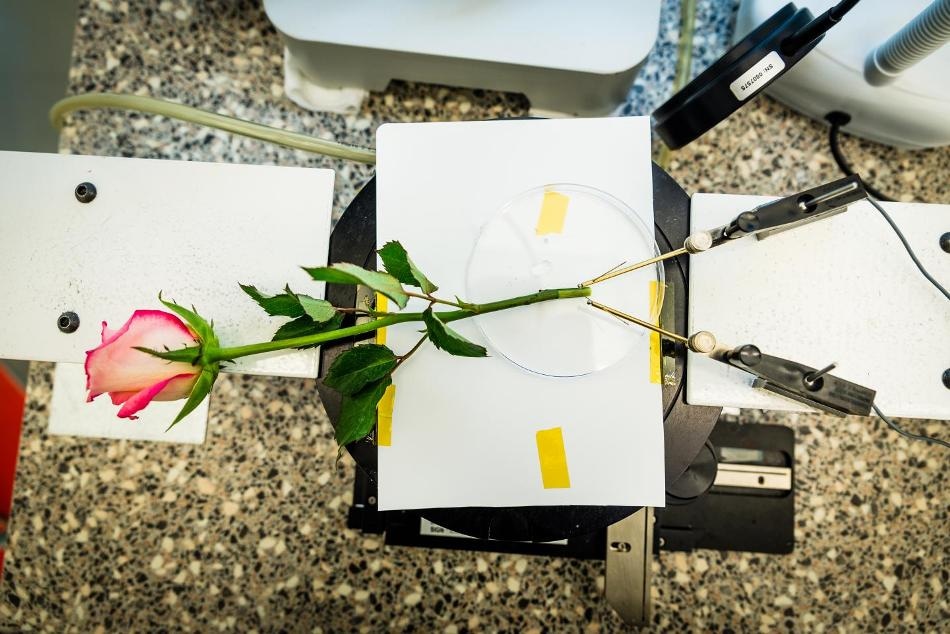Feb 28 2017
 This is a supercapacitor Rose from Laboratory of Organic Electronic, Link�ping University. (Credit - Thor Balkhed)
This is a supercapacitor Rose from Laboratory of Organic Electronic, Link�ping University. (Credit - Thor Balkhed)
A research group presented results in November 2015 showing that they had caused roses to absorb a conducting polymer solution.
Hydrogel was conducted in the rose's stem in the form of wires. Electrodes were placed one at each end and a gate was placed in the middle to create a fully functional transistor. The results were reported in Science Advances and have generated substantial interest globally.
Assistant Professor Roger Gabrielsson, one of the researchers in the group, has currently developed a material specifically created for this application. The material polymerizes within the rose without any external stimulation. The innate fluid that flows within the rose helps with the creation of long, conducting threads, not only in the stem but also all over the plant, including the petals and leaves.
We have been able to charge the rose repeatedly, for hundreds of times without any loss on the performance of the device. The levels of energy storage we have achieved are of the same order of magnitude as those in supercapacitors. The plant can, without any form of optimization of the system, potentially power our ion pump, for example, and various types of sensors.
Eleni Stavrinidou, Assistant Professor at the Laboratory of Organic Electronics
The findings will be published in the prestigious scientific journal Proceedings of the National Academy of Sciences of the United States of America (PNAS).
"This research is in a very early stage, and what the future will bring is an open question," says Eleni Stavrinidou.
Some examples are the possibility of harvesting energy from plants to power sensors, different types of switches, autonomous energy systems, and the prospect of developing fuel cells inside plants.
A few years ago, we demonstrated that it is possible to create electronic plants, 'power plants', but we have now shown that the research has practical applications. We have not only shown that energy storage is possible, but also that we can deliver systems with excellent performance.
Professor Magnus Berggren, Head of the Laboratory of Organic Electronics, Linköping University, Campus Norrköping
The study into electronic plants has been funded by unrestricted research grants from the Knut and Alice Wallenberg Foundation. The foundation appointed Professor Magnus Berggren, a Wallenberg Scholar in 2012.